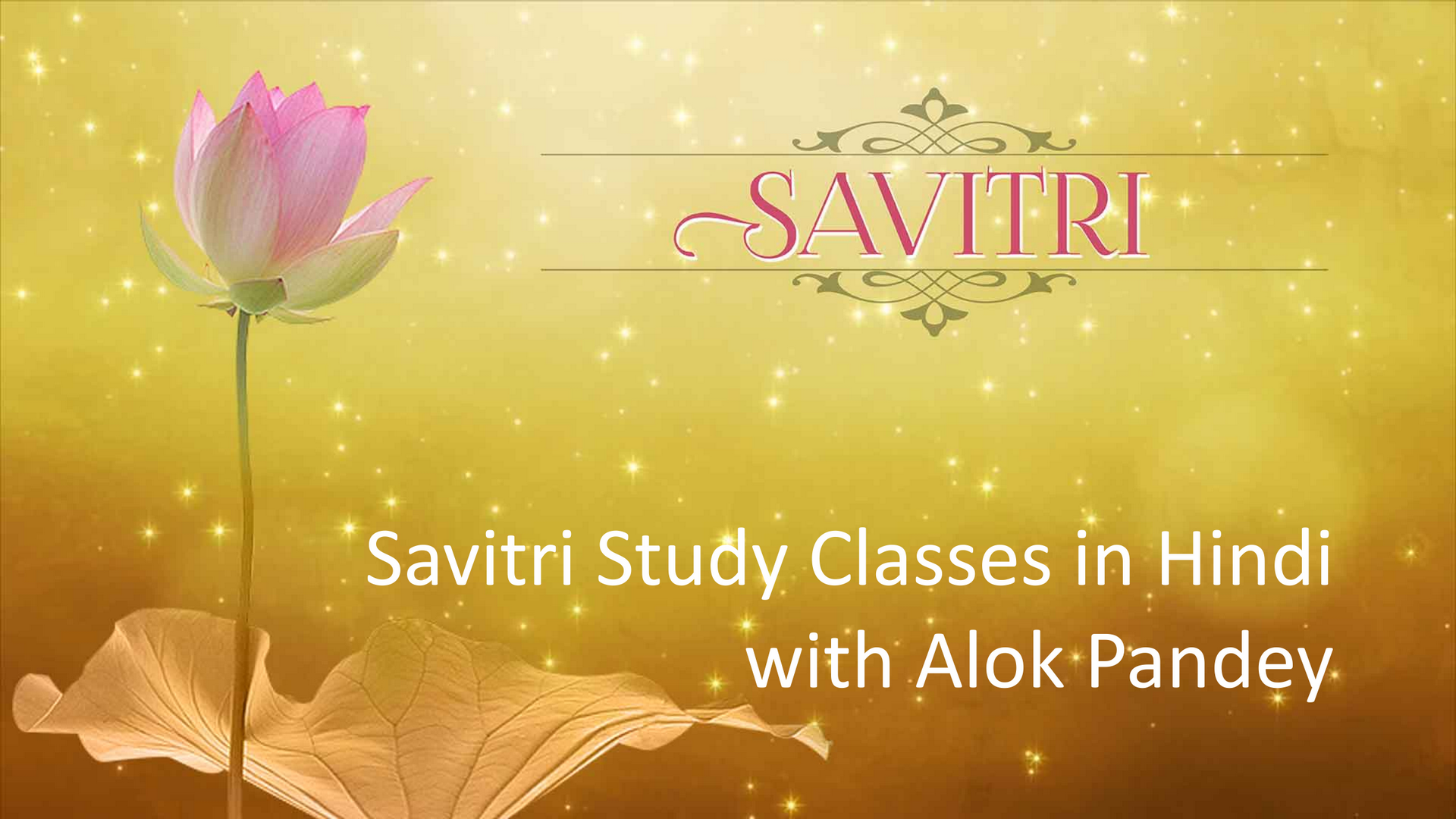Savitri Class in Hindi with Alok Pandey
Savitri Book Seven: The Book of Yoga, Canto One: The Joy of Union; the Ordeal of the Foreknowledge of Death and the Heart’s Grief and Pain
Savitri must experience the entire play of human life and human love. She must face the difficulty and the danger, the fleeting joys and the grief that afflicts human hopes, so that She may find the true remedy. This human experience is being described here, human and yet uplifted by the Divine Touch into sublime heights.
Lingering some days upon the forest verge
Like men who lengthen out departure’s pain,
Unwilling to separate sorrowful clinging hands,
Unwilling to see for the last time a face,
Heavy with the sorrow of a coming day
And wondering at the carelessness of Fate
Who breaks with idle hands her supreme works,
They parted from her with pain-fraught burdened hearts
As forced by inescapable fate we part
From one whom we shall never see again;
Driven by the singularity of her fate,
Helpless against the choice of Savitri’s heart
They left her to her rapture and her doom
In the tremendous forest’s savage charge.All put behind her that was once her life,
All welcomed that henceforth was his and hers,
She abode with Satyavan in the wild woods:
Priceless she deemed her joy so close to death;
Apart with love she lived for love alone.As if self-poised above the march of days,
Her immobile spirit watched the haste of Time,
A statue of passion and invincible force,
An absolutism of sweet imperious will,
A tranquillity and a violence of the gods
Indomitable and immutable.
At first to her beneath the sapphire heavens
The sylvan solitude was a gorgeous dream,
An altar of the summer’s splendour and fire,
A sky-topped flower-hung palace of the gods
And all its scenes a smile on rapture’s lips
And all its voices bards of happiness.There was a chanting in the casual wind,
There was a glory in the least sunbeam;
Night was a chrysoprase on velvet cloth,
A nestling darkness or a moonlit deep;
Day was a purple pageant and a hymn,
A wave of the laughter of light from morn to eve.His absence was a dream of memory,
His presence was the empire of a god.
A fusing of the joys of earth and heaven,
A tremulous blaze of nuptial rapture passed,
A rushing of two spirits to be one,
A burning of two bodies in one flame.Opened were gates of unforgettable bliss:
Two lives were locked within an earthly heaven
And fate and grief fled from that fiery hour.But soon now failed the summer’s ardent breath
And throngs of blue-black clouds crept through the sky
And rain fled sobbing over the dripping leaves
And storm became the forest’s titan voice.Then listening to the thunder’s fatal crash
And the fugitive pattering footsteps of the showers
And the long unsatisfied panting of the wind
And sorrow muttering in the sound-vexed night,
The grief of all the world came near to her.
Night’s darkness seemed her future’s ominous face.
The shadow of her lover’s doom arose
And fear laid hands upon her mortal heart.The moments swift and ruthless raced; alarmed
Her thoughts, her mind remembered Narad’s date.A trembling moved accountant of her riches,
She reckoned the insufficient days between:
A dire expectancy knocked at her breast;
Dreadful to her were the footsteps of the hours:
Grief came, a passionate stranger to her gate:
Banished when in his arms, out of her sleep
It rose at morn to look into her face.[Savitri: pp 467 – 469]
(line breaks are added to emphasize separate movements)




